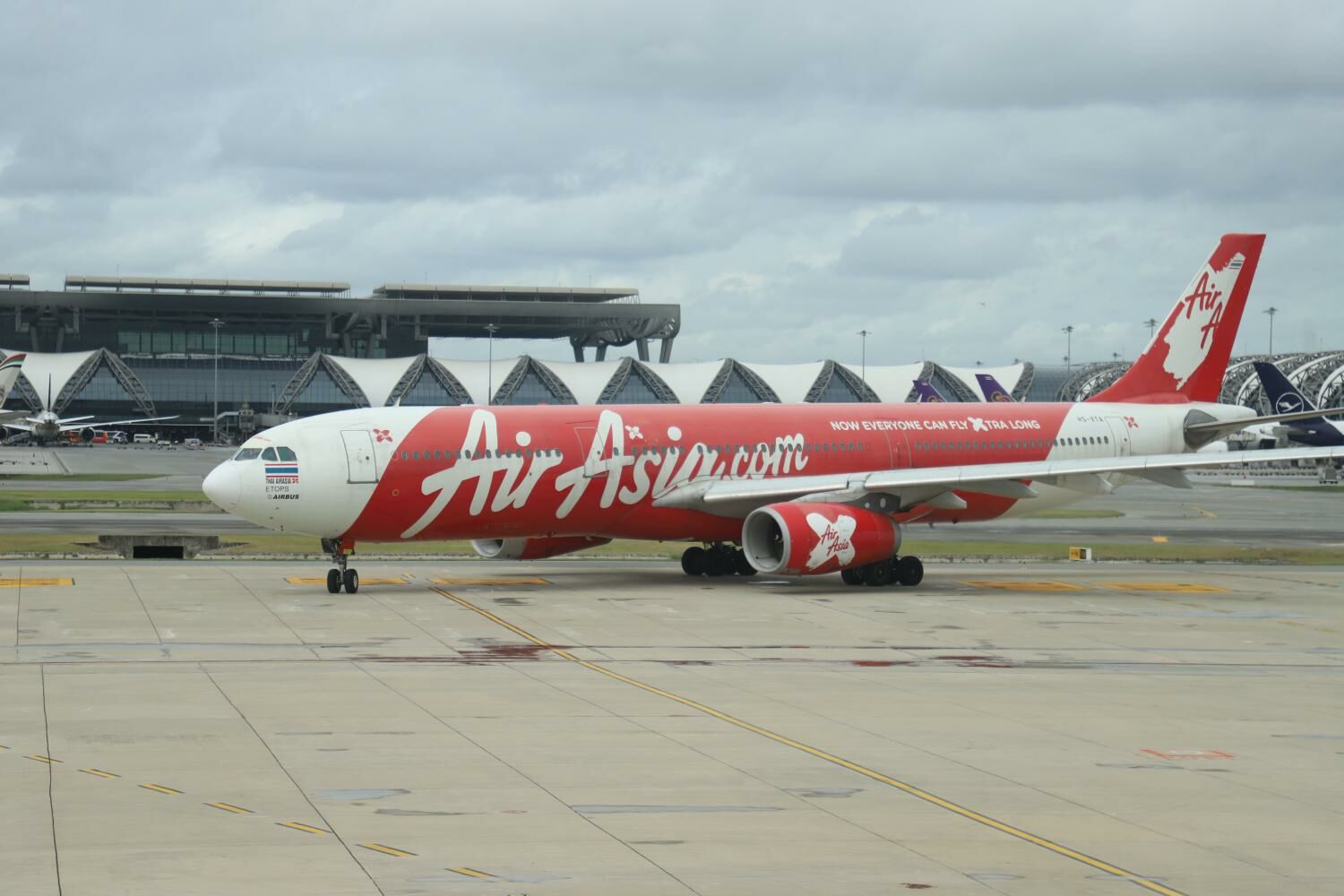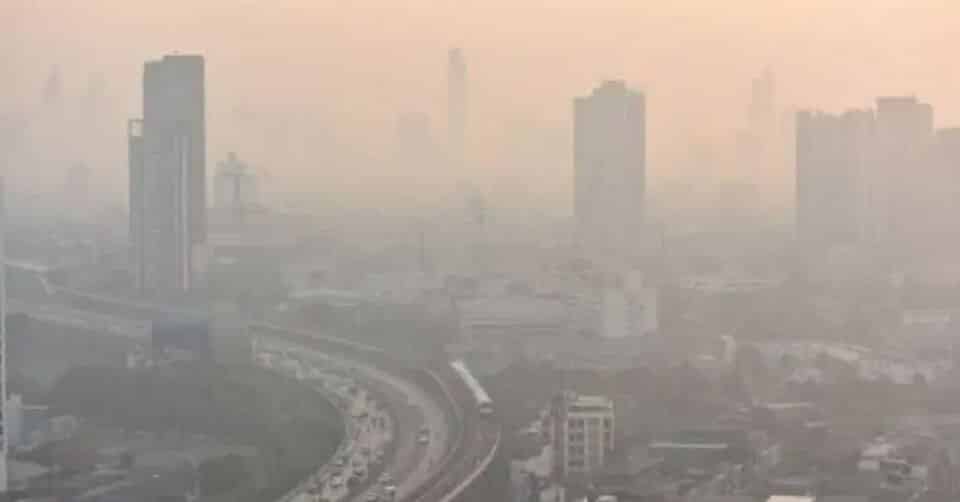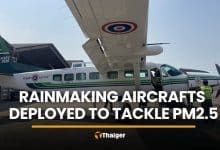Toxic smog disrupts Bangkok flights as PM2.5 levels soar

Bangkok’s toxic air pollution has reached hazardous levels, forcing flight diversions and sparking health warnings across the city.
On Sunday morning, February 2, several flights were diverted from Don Mueang International Airport to Suvarnabhumi Airport, as thick smog reduced visibility to just 150 metres.
Among the affected flights was AirAsia X Flight XJ901 from Harbin, China, which had to be rerouted, while other flights, including AirAsia Flight FD3417 from Chiang Mai and Lion Air Flight SL213 from Ahmedabad, India, were left circling above Don Mueang until conditions improved.
At 11am, PM2.5 levels at Don Mueang were recorded at 64.7 µg/m³, nearly double Thailand’s safe limit of 37.5 µg/m³.
The city has been struggling with hazardous pollution for weeks, forcing school closures and restrictions.

This morning, PM2.5 levels across Bangkok averaged 44.9 µg/m³, with some districts reporting even higher readings, including Bueng Kum (62 µg/m³), Lat Krabang (61.7 µg/m³), and Nong Chok (61 µg/m³).
Officials blame traffic emissions, industrial pollution, and agricultural burning for the worsening air quality. Weather conditions, including stagnant air and temperature inversions, have further trapped pollutants close to the ground.
In response, the Bangkok Metropolitan Administration (BMA) is urging residents to wear masks, limit outdoor activities, and work from home if possible. The city has also made public transport free to reduce road emissions.
Those experiencing coughing, eye irritation, or breathing difficulties are advised to seek medical attention immediately. With no sign of relief, Bangkok’s residents are left choking on smog as pollution levels soar, reported The Independent.

The Thai government is ramping up efforts to combat PM2.5 pollution, which worsens each year and poses serious health risks.
Since January, several provinces have been affected by fine dust, prompting measures such as reducing bushfires, offering free public transport in Bangkok, and temporarily closing schools in highly polluted areas.
To cut vehicle emissions, the government allocated 140 million baht for free transport in Bangkok from January 25 to 31. However, critics argue that the initiative was too limited, highlighting the need for broader, long-term solutions to tackle pollution at its root.
Economist Praipol Koomsup from Thammasat University suggests promoting battery and hybrid electric vehicles (EVs) for commercial use in urban areas to curb emissions.
He points to China’s success in reducing air pollution through policies like closing coal-fired plants and stricter vehicle regulations, urging Thailand to adopt similar strategies for sustainable air quality improvement.
Latest Thailand News
Follow The Thaiger on Google News:


























